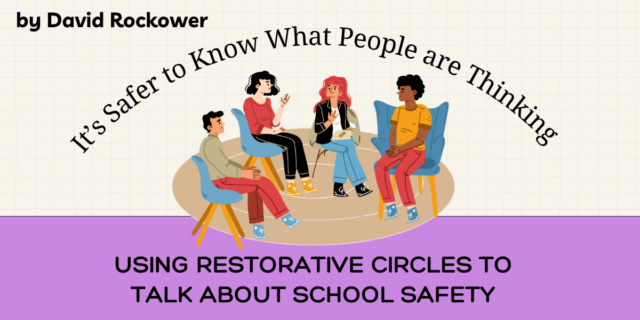
Microaggressions are comments relating to someone’s identity that leave a lasting, negative impression on the receiver of the message. Often, the same microaggressions are heard over and over throughout a person’s life.
Why Should We Teach About Microaggressions?
While microaggressions can be intentionally malicious, they are much more likely to come from well-intentioned people who don’t fully understand their biases. Microaggressions come from people who want to know more about something or to compliment someone, but don’t realize how their words impact the receiver of the message. To avoid microaggressions, people need to know what they are.
The lesson is an exercise in empathy, seeking first to understand how well-intentioned comments relating to a person’s identity can weigh on someone over time.
When Should We Teach About Microaggressions?
Teach about microaggressions as soon as or before you hear your students using them. Don’t lose the teaching moment. A few typical microaggressions to look out for:
- “Where are you from?” or “What are you?” (Said when someone is focusing on another’s ethnic background, especially in a situation when other’s backgrounds aren’t being discussed)
- “You’re really good at math and science, right?” (Said to kids who are Indian, Pakistani, Chinese, Japanese – or assigned to the identity “Asian” encompassing an entire continent and subcontinent made up of dozens of unique countries and cultures)
- “Here, let me do that for you” (Said to a person who someone else has decided is lacking ability, speed, agility, or skill)
- In gym class or on the playground, not picking someone for a team because the chooser assumes they won’t be able to win, score, or succeed. (Flashback to the kid who was always picked last – that stays with people)
- Touching hair (While the intention may be to celebrate its beauty, imagine having people just walk up to you and touch your hair your whole life)
We can also be mindful of our own well-intentioned microaggressions. For example, asking students of color – but not the white students – in your class, “Is anyone home at night to do this homework with?” signals that you have different expectations for those families.
…
The above has been adapted from Being the Change. To learn more, visit Heinemann.com
 Follow us on Instagram @heinemannpub to stay up to date on the latest books, your favorite authors, and upcoming events!
Follow us on Instagram @heinemannpub to stay up to date on the latest books, your favorite authors, and upcoming events!
 Sara K. Ahmed is currently a literacy coach at NIST International School in Bangkok, Thailand. She has taught in urban, suburban, public, independent, and international schools, where her classrooms were designed to help students consider their own identities and see the humanity in others. Sara is coauthor with Harvey "Smokey" Daniels of Upstanders: How to Engage Middle School Hearts and Minds with Inquiry. She has served on the teacher leadership team for Facing History and Ourselves, an international organization devoted to developing critical thinking and empathy for others. You can find her on Twitter @SaraKAhmed.
Sara K. Ahmed is currently a literacy coach at NIST International School in Bangkok, Thailand. She has taught in urban, suburban, public, independent, and international schools, where her classrooms were designed to help students consider their own identities and see the humanity in others. Sara is coauthor with Harvey "Smokey" Daniels of Upstanders: How to Engage Middle School Hearts and Minds with Inquiry. She has served on the teacher leadership team for Facing History and Ourselves, an international organization devoted to developing critical thinking and empathy for others. You can find her on Twitter @SaraKAhmed.


